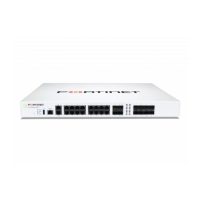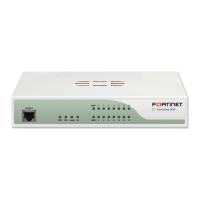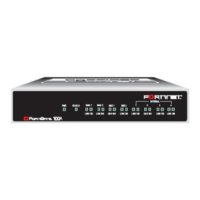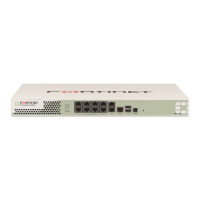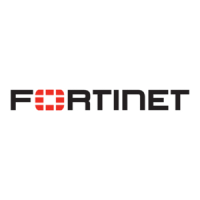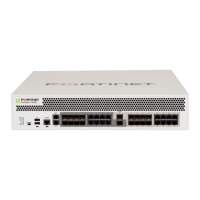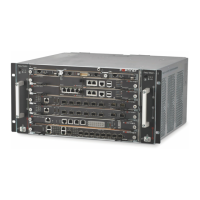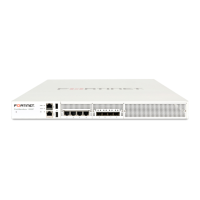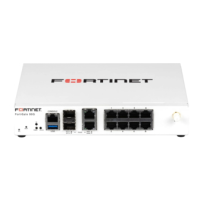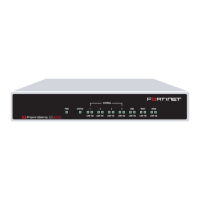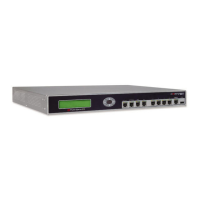Connecting to the web-based manager or CLI Hardware installation
FortiMail™ Secure Messaging Platform Version 4.0 Patch 1 Install Guide
30 Revision 2
http://docs.fortinet.com/ • Feedback
• the RJ-45-to-DB-9 serial or null modem cable included in your FortiMail package
• terminal emulation software, such as HyperTerminal for Microsoft Windows
To connect to the CLI using an SSH connection, you must have:
• a computer with an Ethernet port
• a crossover Ethernet cable
• an SSH client, such as PuTTY
To connect to the CLI using a local serial console connection
1 Using the RJ-45-to-DB-9 or null modem cable, connect your computer’s serial
communications (COM) port to the FortiMail unit’s console port.
2 Verify that the FortiMail unit is powered on.
3 On your management computer, start HyperTerminal.
4 On Connection Description, enter a Name for the connection, and select OK.
5 On Connect To, from Connect using, select the communications (COM) port where you
connected the FortiMail unit.
6 Select OK.
7 Select the following Port settings and select OK.
8 Press Enter.
The terminal emulator connects to the CLI, and the CLI displays a login prompt.
9 Type admin and press Enter twice. (In its default state, there is no password for this
account.)
The CLI displays the following text:
Welcome!
Type ? for a list of commands.
You can now enter commands. To continue, see “Updating the firmware” on page 63.
For information about how to use the CLI, including how to connect to the CLI using
SSH or Telnet, see the FortiMail CLI Reference.
Table 3: Default settings for connecting to the CLI by SSH
Network Interface port1
IP Address 192.168.1.99
SSH Port Number 22
Administrator Account admin
Password (none)
Note: The following procedure uses Microsoft HyperTerminal. Steps may vary with other
terminal emulators.
Bits per second 9600
Data bits 8
Parity None
Stop bits 1
Flow control None
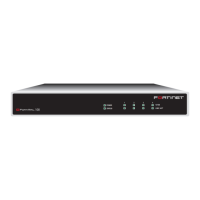
